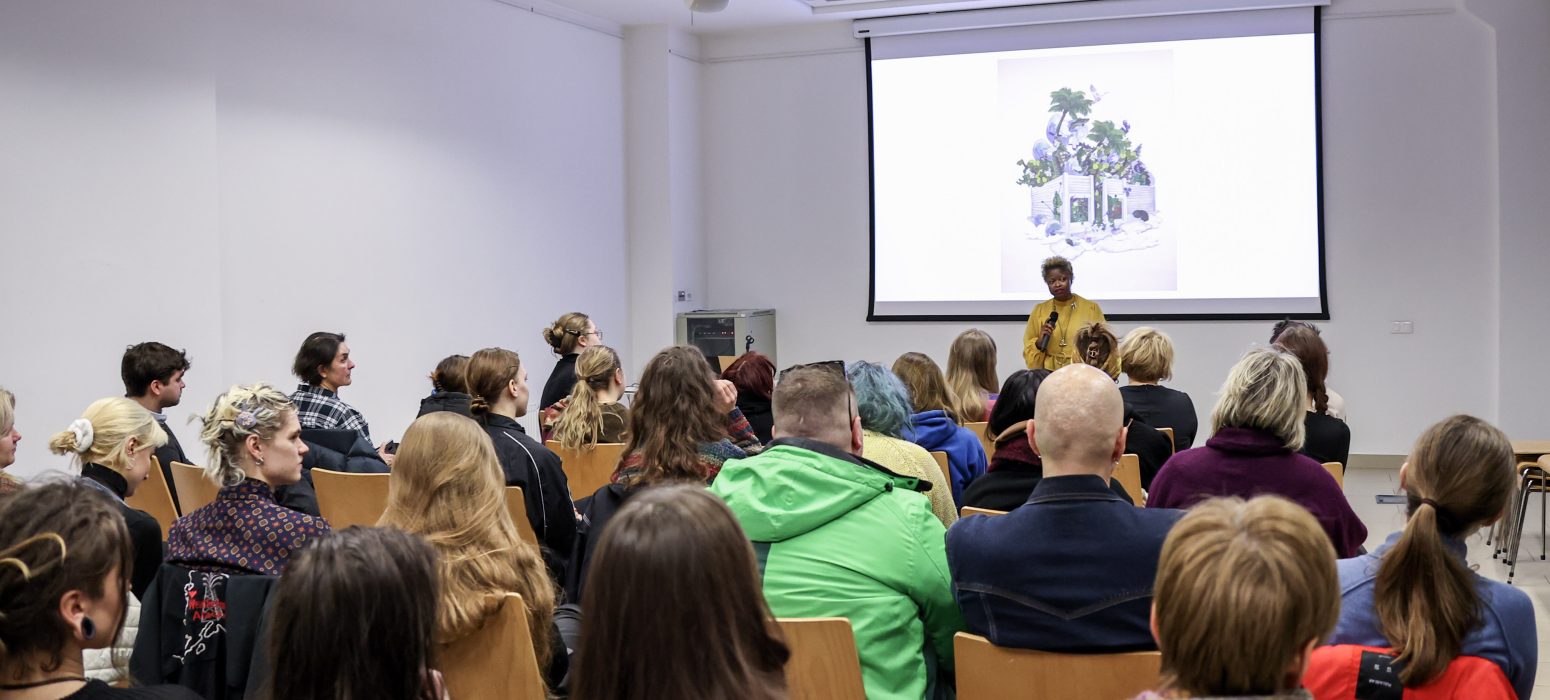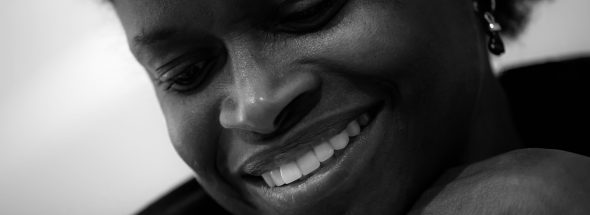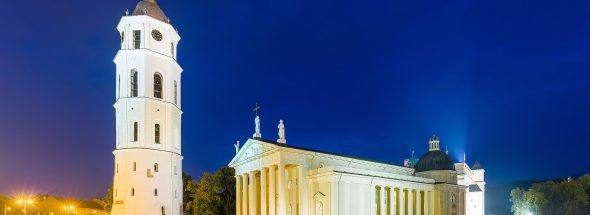
In March 2023 as part of the Democracy Collection initiative, American artist Zoë Charlton traveled to Vilnius, Lithuania, where she spent five days on an artist exchange conducting outreach with the U.S. Embassy. Over the course of the week, she led discussions and practice-based workshops, did studio visits for local art students, met with leading Lithuanian artists, and worked with a group of university students to put together an exhibition.
One of the primary audiences Charlton engaged with over the week was high school and university art students. At the Vilnius Academy for the Arts, she spoke to more than forty participants about the symbols and inspiration in her artwork and the media she has explored, along with themes of family, colonialism, belonging, and the environment. She worked with local street artist and Vilnius Academy for the Arts graduate Antanas Repečka to lead a practice-based workshop with students at Senvagė High School. At the European Humanities University, Charlton held a collage workshop for around thirty-five Belarussian and Ukrainian refugees with the guidance of U.S. Fulbright Scholar and art historian Jeffrey Taylor, communicating ideas of civil society and democracy-building.
During her time in Vilnius, Charlton met one-on-one with a number of artists, building creative and cultural bridges. She met with found object artist Jolita Vaitkutė to discuss shared themes of politics in art; the concept of beauty in the contemporary world; and recycling in culture, art, and environment. Charlton also did studio visits for students at the Vilnius Academy for the Arts and the European Humanities University where her experience as an artist and art critic helped enrich local students’ artistic vision and their perception of the U.S.’s cultural landscape. She also shared her experiences and knowledge with up-and-coming Lithuanian artist Kristina Ališauskaitė-Volungevičienė and provided a consultation on materials and techniques.
U.S. Ambassador Robert Gilchrist held a reception at his Residence to celebrate Charlton’s exchange and the Art in Embassies exhibition. In attendance were luminaries of Lithuanian art and culture, old and new contacts across generations of artists, art critics, cultural program managers, and national institutions of culture and education. The Ambassador and Charlton spoke to the assembled group about the mission of Art in Embassies, the exhibition at large, perceptions of American artists, and Charlton’s social and cultural influences.
Over the course of five days of programming, Charlton engaged with a variety of audiences about similar themes—belonging, self-expression, and what it means to be an artist. The week concluded with an exhibition of the art created during the workshop at European Humanities University. Titled Belonging, the exhibition was especially meaningful for the Belarusians and Ukrainians uprooted from their homes by oppression and war.

